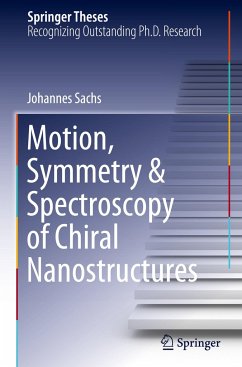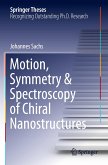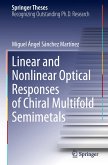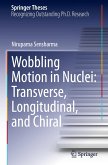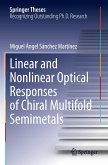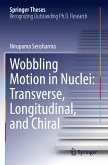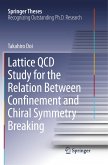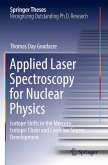This book focuses on complex shaped micro- and nanostructures for future biomedical and sensing applications that were investigated by both theory and experiments.
The first part of the book explores rotation-translation coupling of artificial microswimmers at low Reynolds numbers. Usually corkscrew shapes, i.e chiral shapes, are considered in such experiments, due to their inspiration from nature. However, the analysis of the relevant symmetries shows that achiral objects can also be propulsive, which is experimentally demonstrated for the first time.
In the second part, a new single-particle spectroscopy technique was developed and the role of symmetry in such measurements is carefully examined. Spectra stemming from one individual nanoparticle that is moving freely in bulk solution, away from a surface, and only due to Brownian motion, are presented. On that basis, the rotationally averaged chiroptical spectrum of a single nanoparticle is measured - a novel observablethat has not been accessible before.
The first part of the book explores rotation-translation coupling of artificial microswimmers at low Reynolds numbers. Usually corkscrew shapes, i.e chiral shapes, are considered in such experiments, due to their inspiration from nature. However, the analysis of the relevant symmetries shows that achiral objects can also be propulsive, which is experimentally demonstrated for the first time.
In the second part, a new single-particle spectroscopy technique was developed and the role of symmetry in such measurements is carefully examined. Spectra stemming from one individual nanoparticle that is moving freely in bulk solution, away from a surface, and only due to Brownian motion, are presented. On that basis, the rotationally averaged chiroptical spectrum of a single nanoparticle is measured - a novel observablethat has not been accessible before.

